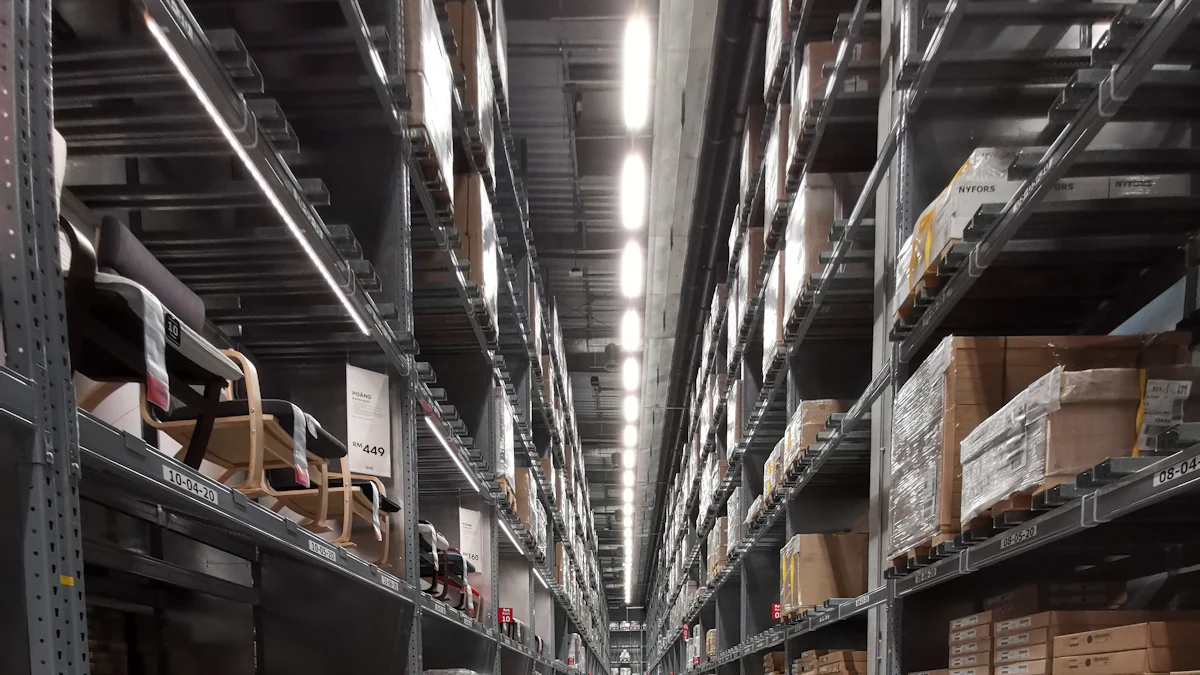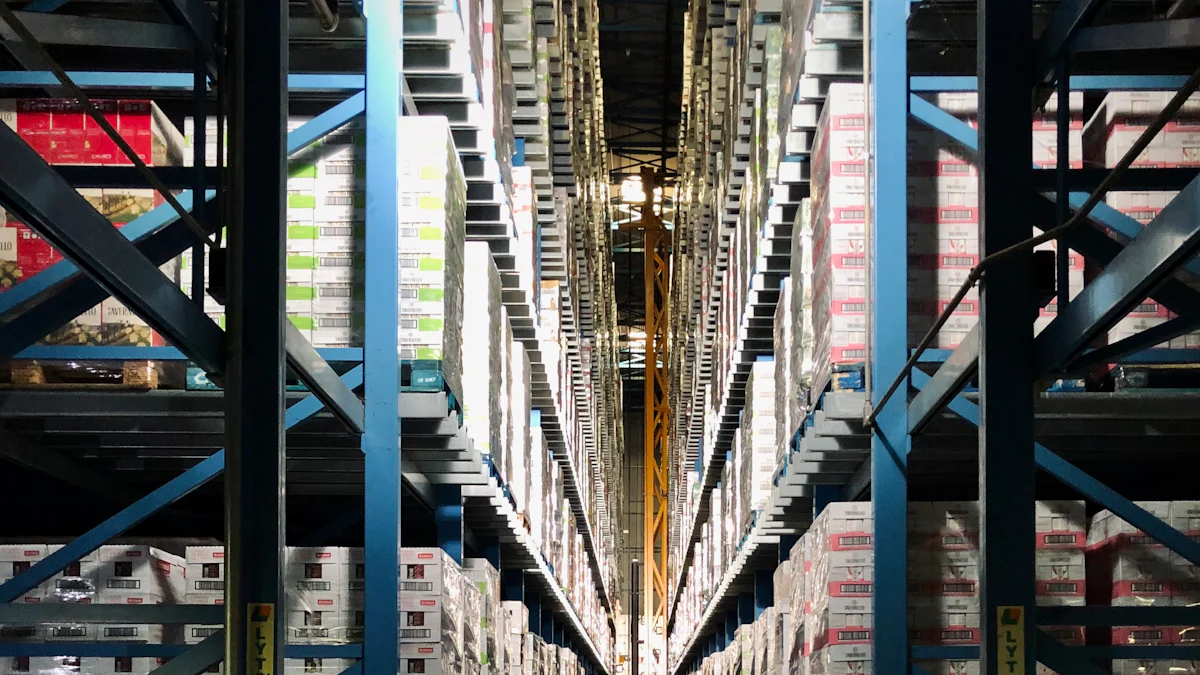Mastering Supply Chain Disruptions: A Comprehensive Guide

Supply chain disruptions have become a prevalent issue in today's global economy, with a significant increase in incidents reported worldwide. The impact of these disruptions extends beyond businesses to affect consumers on a daily basis. Understanding and mastering these disruptions are crucial for companies to navigate the challenges effectively. In this comprehensive guide, key points will be covered to help businesses enhance their resilience and mitigate the adverse effects of supply chain disruptions.
Causes of Supply Chain Disruptions

Global Complexity
The interconnectedness of markets plays a pivotal role in the occurrence of supply chain disruptions. When one market experiences a disturbance, it can have a domino effect on other interconnected markets, leading to a ripple effect of delays and shortages. Geopolitical issues further exacerbate this complexity by introducing uncertainties and challenges that companies must navigate to ensure the smooth flow of goods and services.
The global complexity of markets has been evident during historical events like World War II, where trade routes were severely disrupted, impacting supply chains worldwide.
Shipping Delays
Trade corridor blockages, such as those witnessed at the Suez Canal in 2021, highlight the vulnerability of global trade routes to disruptions. These blockages can halt the movement of essential goods, causing delays in delivery times and increasing costs for businesses. Port congestion is another significant factor contributing to shipping delays, as overcrowded ports struggle to handle incoming and outgoing shipments efficiently.
The recent disruptions in supply chains due to port congestion have led to repercussions such as shortages of toiletries and sanitizers during the Covid-19 pandemic.
Lack of Flexibility
Inability to adapt to market changes is a common issue faced by companies with rigid supply chain structures. When unexpected events occur, such as heightened demand or trade restrictions during crises like the Covid-19 pandemic, inflexible supply chains struggle to adjust quickly. This lack of agility can result in bottlenecks within the supply chain, leading to further disruptions downstream.
The impact of the Covid-19 pandemic on global supply chains resulted in historically high prices for imports to the United States, showcasing the importance of flexibility in times of crisis.
Impacts of Supply Chain Disruptions
Economic Impacts
Economic experts emphasize the significant repercussions of supply chain disruptions on the global economy. The intricate web of interconnected supply chains can magnify even minor disturbances, causing widespread effects. Research indicates that during the Covid-19 pandemic, approximately 25% of the total real GDP decline across 64 countries stemmed from national lockdowns and their impact on labor availability transmitted through global supply chains.
As highlighted by economic experts, deeply intertwined supply chains can transform micro disruptions into macro-level consequences, underscoring the critical need for resilience in today's global market.
Inflationary Pressures
The disruptions in supply chains can trigger inflationary pressures that reverberate throughout various sectors. Consumer prices may surge as a result of delays and shortages in essential goods, impacting individuals' purchasing power. Moreover, corporate profits may face challenges due to increased operational costs and reduced efficiency caused by supply chain disruptions.
According to economic research, enhancing the resilience of supply chains is vital to mitigate inflationary pressures and sustain economic stability in the face of unforeseen disruptions.
Business Continuity
Maintaining seamless operations amidst supply chain disruptions poses significant challenges for businesses worldwide. Operational hurdles such as delayed deliveries and inventory shortages can hinder production processes and lead to customer dissatisfaction. Ensuring high levels of customer satisfaction becomes increasingly difficult when faced with unpredictable disruptions along the supply chain.
Economic experts stress the importance of fortifying business continuity strategies to navigate through turbulent times and uphold operational efficiency despite external challenges.
Strategies to Master Supply Chain Disruptions

When addressing supply chain disruptions, companies must implement proactive strategies to enhance their resilience and minimize the impact of unexpected events. By focusing on risk mitigation, emergency response plans, and technological investments, businesses can navigate through turbulent times with greater efficiency and effectiveness.
Risk Mitigation
Diversified Sourcing
One crucial strategy to mitigate the effects of supply chain disruptions is by diversifying sourcing channels. By establishing relationships with multiple suppliers across different regions, companies can reduce dependency on a single source. This approach enhances flexibility and ensures a steady flow of essential materials even when facing disruptions in specific markets.
Flexible Contracts
Implementing flexible contracts with suppliers is another key aspect of risk mitigation. These contracts should include clauses that address potential disruptions, such as force majeure events or changes in market conditions. By fostering transparent communication and mutual understanding, companies can adapt quickly to unforeseen circumstances and maintain operational continuity.
Emergency Response Plans
Creating dedicated crisis management teams is essential for swift decision-making during supply chain disruptions. These teams should consist of cross-functional experts who can assess the situation, identify critical issues, and implement immediate solutions. By having a structured response framework in place, companies can effectively manage crises and minimize downtime.
Developing comprehensive contingency plans is vital for ensuring business continuity in the face of disruptions. These plans should outline alternative courses of action for various scenarios, including supplier failures, transportation delays, or natural disasters. By proactively preparing for potential risks, companies can respond promptly and mitigate the impact on their operations.
Technological Investments
Digital Solutions
Investing in digital solutions such as supply chain management software can significantly improve visibility and transparency across the supply chain. These tools enable real-time tracking of inventory levels, production processes, and delivery schedules, allowing companies to identify potential disruptions early on. By leveraging technology, businesses can streamline operations and enhance overall efficiency.
Utilizing data analytics tools is crucial for predicting and mitigating supply chain disruptions based on historical trends and patterns. By analyzing large datasets related to supplier performance, market demand, and logistics operations, companies can identify potential risks proactively. Data-driven insights empower decision-makers to optimize supply chain processes and make informed strategic choices.
A proactive approach to supply chain risk management can help mitigate threats, ensure business continuity, and prevent organizations from being blindsided by unforeseen crisis events. Supply chain leaders must be both proactive and reactive at the same time to safeguard operations and organizations against disruptive events. Operating with a proactive design is essential for ensuring a well-functioning supply chain. A smart company pays attention to the way their supply chain operates and works with a proactive design over a reactive one. Proactive supply chain management helps organizations improve their CSR index and slash operating costs.
See Also
Insightful Strategies: Managing Disruptions in the Supply Chain
Preparedness Strategies: Building Resilient Supply Chain Networks
Seamless Success: Ensuring Continuity in the Supply Chain
Logistics Transformation: Driving Innovation in the Supply Chain
